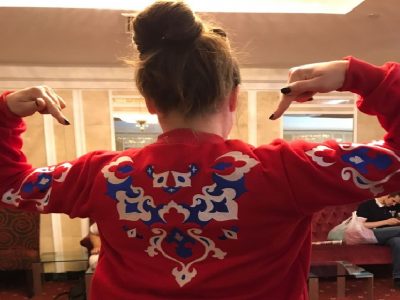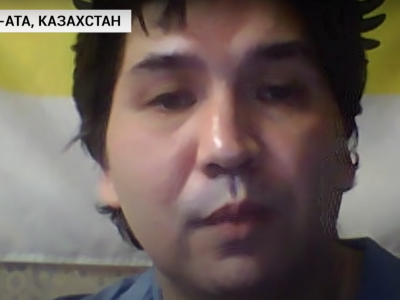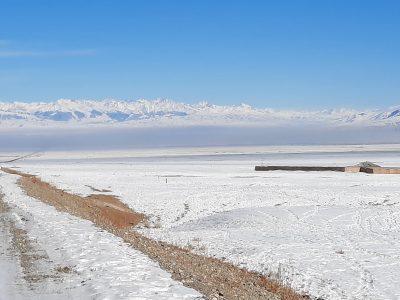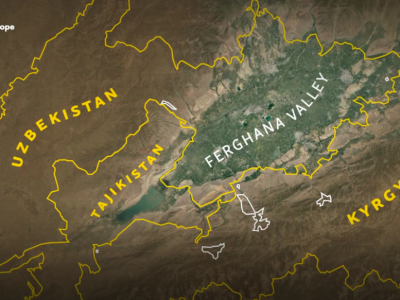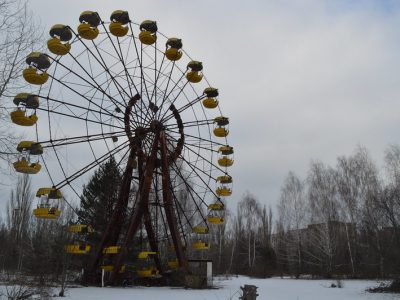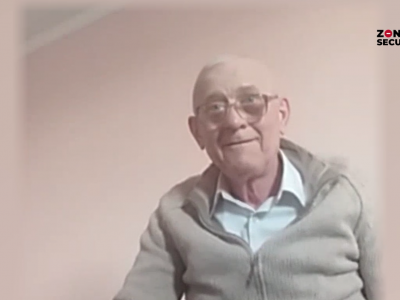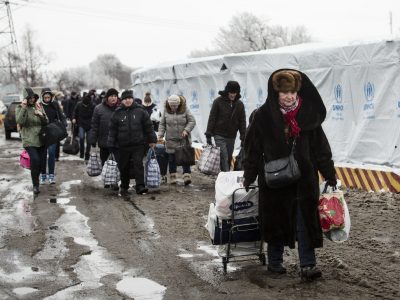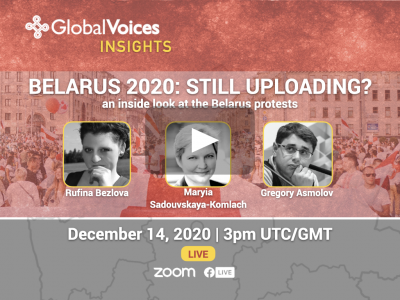
Image by Giovana Fleck, used with permission.
December 2021 marks the 30th anniversary of the end of the USSR, the Union of Soviet Socialist Republics, a country that lasted 79 years and covered about one sixth of the earth. Fifteen independent states have emerged from it, as well as a growing list of unrecognized territories that illustrate the difficulty of redrawing maps, (re)claiming independence, and building sustainable and sovereign societies.
For some, such as Estonia, Latvia and Lithuania, now members of the European Union and NATO, the process has been smoother. For others, such as Ukraine, Moldova, Armenia, Azerbaijan, and Georgia, territorial disputes are still ongoing, and, while many of these nations that emerged from the end of the USSR are often looking to the European Union for a closer relationship, the economic transition remains difficult. Belarus, which was enjoying a relatively peaceful transition, has been in turmoil for over a year now with a sharp increase in state violence. In Central Asia, the states of Kazakhstan, Kyrgyzstan, Tajikistan (the only one in that region that suffered a civil war), Turkmenistan and Uzbekistan are still struggling economically, while coming under greater Chinese influence and rediscovering their Islamic heritage.
Three decades after the fall of the Soviet Union, what does independence look like? And for whom? What part of the Soviet heritage, if any, is still relevant to people and younger generations? Why is nostalgia for the Soviet period a powerful political instrument in certain countries and for certain groups? What does the fall of the USSR represent for people who never experienced it? What part of the Soviet heritage is still alive or remembered today? What is the enduring legacy of the USSR in countries that never formed a part of it?
This Special Coverage seeks to explore those issues through the lenses of politics, unresolved conflicts, human rights, historical memory, visual art, music and architecture. Take a look at some of the stories we've already published about the region:
Stories about The USSR's legacy 30 years on
‘Kazakh language is perfect for rap': Interview with cultural commentator Yevgeniya Plakhina
Sung in a mix of Kazakh and Russian, played with traditional nomadic and new musical instruments, contemporary alternative music from Kazakhstan offers an eclectic and rich environment.
Is a revival of Tatar selfhood possible despite Russia's identity politics?
Can the political limitations on the use and teaching of native languages in Russia propel the revival of Tatar national identity?
Ukraine: 30 years in pursuit of equality
As the Ukrainian government celebrates 30 years of independence, the reality is that, for many, independence has not brought the prosperity they were promised.
Blogger gets prison sentence for branding Kazakhstan's language policies “russophobic”
According to Taichimbekov, the Kazakh state has been "sourcing Russian individuals who speak out in favor of banning Russian television, banning Russian language, excluding it from the Constitution."
Is anti-Chinese sentiment in Kyrgyzstan strong enough to freeze a key Belt and Road Initiative project?
A logistics project in Kyrgyzstan, part of China's BRI infrastructure program, was poised to become a commercial hub in the heart of Eurasia. Despite the hype, it now seems stalled.
Small but complex: the unexpected political ramifications of enclaves
Often a source of overlapping spatial and human conflicts, enclaves are a peculiar geographic configuration that put into question sovereignty and identity in several regions of the world.
Ukraine commemorates 77th anniversary of Crimean Tatar deportation
The trauma and memory of the deportation remain central to the history and identity of the Crimean Tatars and have gained renewed attention since Russia's occupation of Crimea in 2014.
Ukraine, Belarus commemorate 35th anniversary of Chernobyl disaster
For the world, Chornobyl symbolises the fragility of our environment and the threat posed by human activity. But for many in Ukraine and Belarus, it remains a personal tragedy.
In unrecognized Transnistria, a retiree faces criminal charges for ‘anti-Russian’ rhetoric
A 70-year-old Transnistria citizen faces a five-year prison term for critical statements about Russian peacekeeping forces in the breakaway Moldova region.
Capturing the mood on both sides of the Ukraine-Russia conflict in Donbas
A new survey finds that Donbas citizens hold little trust in state institutions and are divided on the future of the region, but strive for economic stability.
Some Western observers share Central Asia's misgivings about Alexey Navalny
"Western policy-makers even turn a blind eye to the fact that Navalny’s foreign and security policies run directly counter to Western objectives. Maybe they think it’s worth the gamble."
‘How do you live here?’ A local podcaster takes on misconceptions about eastern Ukraine
In Slavyansk, one podcaster is attempting to refocus outsiders' perspectives of eastern Ukraine — for Nika Perepelitsa, it is not simply the site of tragedies, but also of diverse cultural possibilities.
WATCH: Belarus 2020: Still uploading?
In this edition of our Global Voices Insights series, media analyst Maryia Sadouvskaya-Komlach, artist Rufina Bezlova and scholar Gregory Asmolov revisit the events in Belarus following the August 2020 presidential elections.


